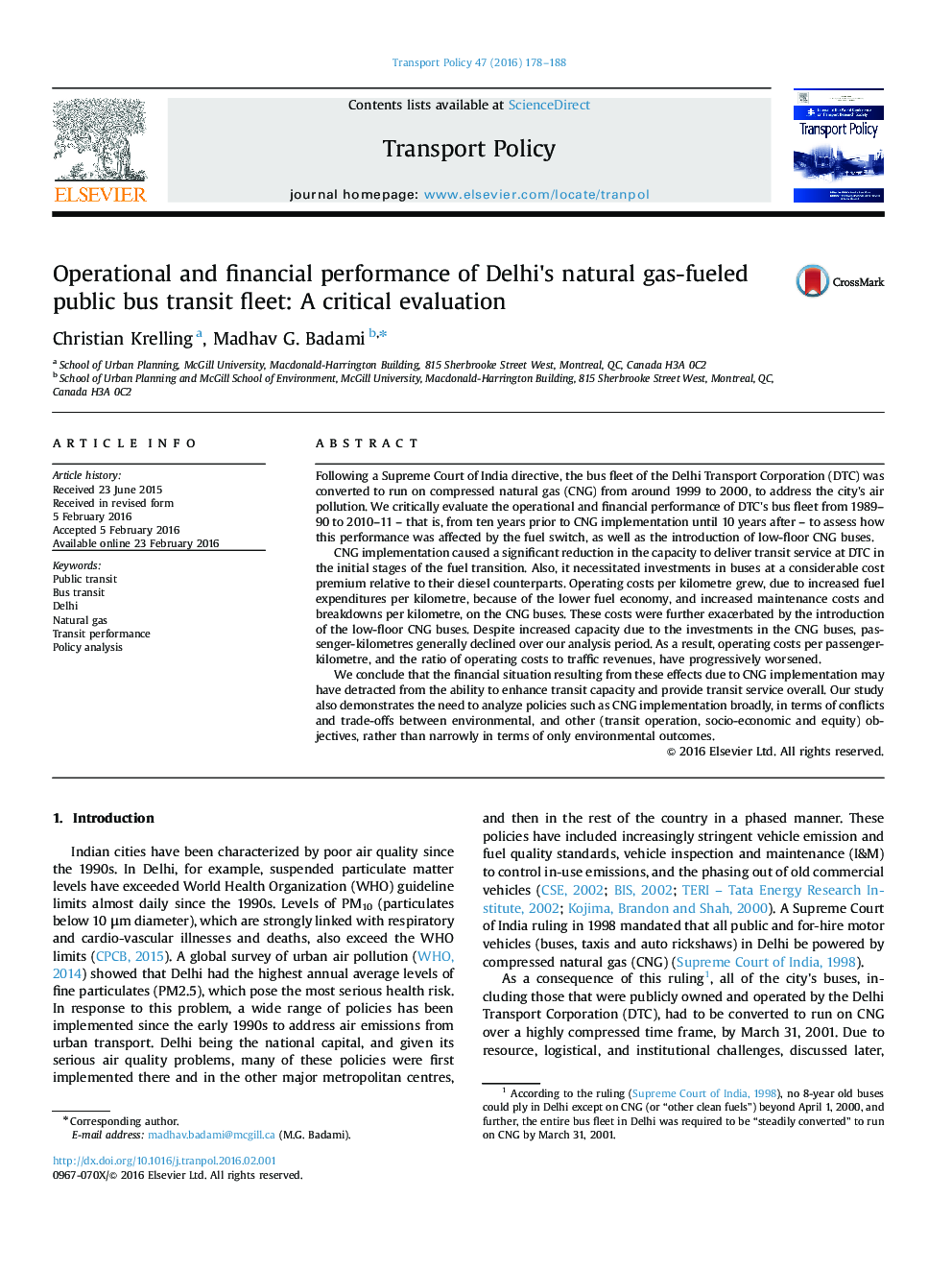| کد مقاله | کد نشریه | سال انتشار | مقاله انگلیسی | نسخه تمام متن |
|---|---|---|---|---|
| 1064761 | 1485830 | 2016 | 11 صفحه PDF | دانلود رایگان |
• We evaluate the performance of Delhi's public bus fleet from 1989–90 to 2010–11.
• We do so to assess the effect of implementation of natural gas and low-floor buses.
• CNG has had significant cost implications, affecting DTC's financial situation.
• This situation may compromise the ability to provide public transit service overall.
• Such policies should be analyzed broadly rather than only on environmental outcomes.
Following a Supreme Court of India directive, the bus fleet of the Delhi Transport Corporation (DTC) was converted to run on compressed natural gas (CNG) from around 1999 to 2000, to address the city's air pollution. We critically evaluate the operational and financial performance of DTC's bus fleet from 1989–90 to 2010–11 – that is, from ten years prior to CNG implementation until 10 years after – to assess how this performance was affected by the fuel switch, as well as the introduction of low-floor CNG buses.CNG implementation caused a significant reduction in the capacity to deliver transit service at DTC in the initial stages of the fuel transition. Also, it necessitated investments in buses at a considerable cost premium relative to their diesel counterparts. Operating costs per kilometre grew, due to increased fuel expenditures per kilometre, because of the lower fuel economy, and increased maintenance costs and breakdowns per kilometre, on the CNG buses. These costs were further exacerbated by the introduction of the low-floor CNG buses. Despite increased capacity due to the investments in the CNG buses, passenger-kilometres generally declined over our analysis period. As a result, operating costs per passenger-kilometre, and the ratio of operating costs to traffic revenues, have progressively worsened.We conclude that the financial situation resulting from these effects due to CNG implementation may have detracted from the ability to enhance transit capacity and provide transit service overall. Our study also demonstrates the need to analyze policies such as CNG implementation broadly, in terms of conflicts and trade-offs between environmental, and other (transit operation, socio-economic and equity) objectives, rather than narrowly in terms of only environmental outcomes.
Journal: Transport Policy - Volume 47, April 2016, Pages 178–188
